This article was co-authored by Noel Hunter, Psy.D. Dr. Noel Hunter is a Clinical Psychologist based in New York City. She is the director and founder of MindClear Integrative Psychotherapy. She specializes in using a trauma-informed, humanistic approach for treating and advocating for people diagnosed with mental disorders. Dr. Hunter holds a BA in Psychology from the University of South Florida, an MA in Psychology from New York University, and a doctorate in Psychology (Psy.D) from Long Island University. She has been featured in National Geographic, BBC News, CNN, TalkSpace, and Parents magazine. She is also the author of the book Trauma and Madness in Mental Health Services.
There are 25 references cited in this article, which can be found at the bottom of the page.
wikiHow marks an article as reader-approved once it receives enough positive feedback. In this case, 80% of readers who voted found the article helpful, earning it our reader-approved status.
This article has been viewed 31,375 times.
Living a normal, happy life with schizophrenia may not be easy, but it is certainly possible. In order to do this, you will need to find a treatment (or treatments) that work for you, manage your life by avoiding stressors, and create a support system for yourself. If you have been diagnosed with schizophrenia, do not despair. Instead, harness your inner strength and face your condition head-on. There is also valuable information for how to live with someone with schizophrenia.
Steps
Seeking Treatment
-
1Start early. Do not wait to get treatment for schizophrenia. If you have not been properly diagnosed, see a medical professional as soon as you notice symptoms in yourself so that you may begin treatment. The earlier treatment is started the better the outcome tends to be. Symptoms tend to begin in men in their early or mid-20s whereas symptoms are more likely to first occur in women in their late 20s. [1] Signs of schizophrenia can include:
- A sense of suspiciousness.
- Unusual or strange thoughts, such as believing someone close to you wishes you harm.
- Hallucinations, or changes in your sensory experiences; for example, seeing, tasting, smelling, hearing, or feeling things that others don’t experience in situations where they should if you are experiencing them.[2]
- Disorganized thinking or speech.
- 'Negative' symptoms (i.e., reductions of typical behavior or functioning) such as a lack of emotion, a lack of eye contact, a lack of facial expression, neglect of hygiene, and/or social withdrawal.
- Disorganized or abnormal motor behavior, such as putting one's body into weird postures, or engaging in pointless or excessive movements.
-
2Learn about the risk factors. There are several factors that put individuals at an increased risk for developing schizophrenia:
- Having a family history of schizophrenia.
- Taking mind-altering drugs as a young adult or teenager.
- Certain types of experiences in the womb, such as exposure to viruses or toxins.
- Increased immune system activation from things like inflammation.
Advertisement -
3Meet with your doctor regarding treatment. Unfortunately, schizophrenia is not a condition that can simply go away. Treatment will be a necessary part of your life, and creating a treatment plan will help to turn your treatment into another normal part of your daily activities. To create a treatment plan, talk with your doctor about the medications and therapies that will best fit your specific condition.
- Remember that everyone is different—not all medications or therapies will work for everyone, but you must keep trying to find the treatment that works best for you.
-
4Ask your doctor about your medication options. Do not try to figure out what the right medications are for you by using the Internet—there is a lot of information online, and not all of it is accurate. Instead, talk to your doctor, who will be able to determine what medications will work best for you. Your symptoms, age, and previous medical history will all play a factor in finding the right medication.[3]
- If the medications you are taking are making you feel uncomfortable, tell your doctor. She may opt to adjust the dosage or recommend a different medication for you to try.
- Common medications used to treat schizophrenia include antipsychotics that act on the neurotransmitters dopamine and serotonin.[4]
- Atypical antipsychotics tend to have fewer side effects and so are generally preferred, they include [5]
:
- Aripiprazole (Abilify)
- Asenapine (Saphris)
- Clozapine (Clozaril)
- Iloperidone (Fanapt)
- Lurasidone (Latuda)
- Olanzapine (Zyprexa)
- Paliperidone (Invega)
- Quetiapine (Seroquel)
- Risperidone (Risperdal)
- Ziprasidone (Geodon)
- First generation antipsychotics tend to have more side effects (some of which may be permanent. They tend to be cheaper. First generation antipsychotics include[6]
:
- Chlorpromazine (Thorazine)
- Fluphenazine (Prolixin, Modecate)
- Haloperidol (Haldol)
- Perphenazine (Trilafon)
-
5Try psychotherapy. Psychotherapy can help you stick to your treatment plan as well as aid you in understanding yourself and your condition better. Talk to your doctor about the kind of psychotherapy that they think is right for you. It is important to keep in mind, however, that psychotherapy alone cannot cure schizophrenia. [7] Some of the more common forms of psychotherapy include:
- Individual psychotherapy: This therapy involves you meeting with a therapist one-on-one to discuss how you are feeling, problems you may be facing, and the relationships you have, among other topics. The therapist will attempt to teach you how to face your day to day issues and understand your condition better.
- Family education: This is where you and your immediate family members go to therapy together so that you can all learn about your condition and work towards effectively communicating and interacting with each other. [8]
- Cognitive therapy is helpful for people with schizophrenia. [9] Importantly, however, psychotherapy in combination with medication is the most effective way to treat schizophrenia.[10] [11]
-
6Think about engaging in a community approach. If you have been in a hospital because of your condition, you may want to consider the community approach, such as assertive community treatment or ACT. This approach will help you to re-establish yourself in a community and get the support you need while developing your daily habits and social interactions.[12] [13]
- Assertive community treatment involves the use of an interdisciplinary team who is involved in assessment and intervention in various forms. These forms may include substance abuse specialists, vocational rehabilitation specialists, and nurses.[14]
- To find assertive community treatment opportunities near you, search the internet for “assertive community treatment + your city or state”, or ask your doctor for a recommendation.
Managing Your Life
-
1Stick with your meds. It can be common for those with schizophrenia to stop taking their medication. You can use a few approaches to try to stick to using your medication in times when you feel like quitting [15] :
- Remind yourself that your medications treat, but tend not to cure, schizophrenia. This means for you to continue to feel better, you likely need to keep taking your medications.
- Use any social support you have; tell your family or friends when you are feeling well to strongly encourage you to keep going on with your meds when you feel like stopping.
- You could record yourself a message for your future self, telling you to keep going with your meds and why (they are a treatment not a cure) and have your family play it back to you when you feel like quitting.
-
2Work on accepting your condition. Accepting your condition may help to make your recovery an easier experience. On the other hand, denying that something is wrong or thinking that your condition will just go away may lead to your condition actually getting worse.[16] Because of this, it is important to begin your treatment and accept these two facts:
- Yes, you have schizophrenia and it will be challenging to deal with.
- But yes, you can live a normal, happy life. Schizophrenia isn't a hopeless condition. You can learn to live with it.
- While accepting your diagnosis is important for seeking treatment, being willing to fight for a normal life can help you to live the life that you want to live.
-
3Remind yourself that there are ways to live a normal life. The initial shock upon hearing the diagnosis can be a very tough for the diagnosed and their families. Living a normal life is possible but it may take some time to adjust to your condition and to find the right treatment plan for you.
- People with schizophrenia who take their medications and go to therapy can have very few problems with social interactions, holding a job, having a family or otherwise excelling in life.
-
4Avoid stressors. Schizophrenia is often brought on when you experience a severe amount of stress.[17] Because of this, if you have this condition, it is important to avoid things that may stress you out and cause you to have an episode. [18] There are multiple ways to deal with stress, such as by:
- Each individual will have different stressors. Going to therapy can help you to identify the things that cause you stress, whether it be a specific person, situation, or place. Once you know your stressors, work hard to avoid them when you can.
- You can, for example, practice relaxation techniques, such as meditation or deep breathing.[19]
-
5
-
6Get enough sleep. Not getting a proper night’s rest can contribute to feelings of stress and anxiety. Be sure to get plenty of sleep at night; figure out how many hours a night you need to feel rested and stick to that.[23] [24]
- If you have trouble sleeping, try making you bedroom completely black and silent by blocking out sounds, changing your environment, or wearing a sleeping mask and earplugs. Get into a routine and follow it every night.
-
7Eat healthy foods. When you eat unhealthy foods it can make you feel negative, which can add to your stress levels. Therefore, it is important to eat right to combat stress. [25]
- Try eating lean meats, nuts, fruits, and vegetables. [26]
- Eating healthy involves having a balanced diet. Avoid eating too much of any one food.
-
8Try out cognitive techniques. Although these are not a substitute for therapy or for a therapist, there are cognitive techniques you can try to alleviate your symptoms.
- You can, for example, use a technique called normalization. In this technique you see your psychotic experiences as part of the same continuum that includes normal experiences, and acknowledge that everyone has experiences that vary from normal, everyday life. This may make you feel less alienated and stigmatized, which can have a positive impact on your health outcomes.[27]
- To cope with auditory hallucinations, such as hearing voices, try listing evidence against the content of the voice. For example, if a voice is telling you to do something negative, like stealing, list reasons why that is not a good idea (e.g., you could get into trouble, it is against social norms, it would cost someone else, most people would tell you not to do it, so don't listen to this one voice).
-
9Try distraction. If you are suffering from hallucinations, try distracting yourself in some way, by, for example, listening to music or making artwork. Do your best to become fully immersed in this new experience as it may help to block out unwanted experiences.
-
10Challenge distorted thoughts. To deal with the social anxiety that can accompany schizophrenia, try to identify then challenge distorted thoughts. For example, if you have the thought that "everyone in this room is looking at me" try questioning the truth value of this statement. Look around the room for evidence: is it the case that in fact everyone is looking at you? Ask yourself how much attention you pay to any one person when they are just walking about in public. [28]
- Remind yourself that in a crowded room there are many people, and so people's attention is likely bouncing around to all of them, and they are probably not just all focused on you.
-
11Try to keep busy. Once you have your symptoms under control through medication and therapy, you should try to restart your normal life and keep busy. Idle time can lead to thinking about things that stress you out, which in turn may lead to an episode. To stay busy:
- Put in an effort at your job.
- Organize time to spend with your friends and family.
- Take up a new hobby.
- Help out a friend or volunteer somewhere.
-
12Avoid taking in a lot of caffeine. Sudden spikes in caffeine might make ‘positive’ symptoms of schizophrenia worse (i.e., unwanted additions such as delusions or hallucinations); although if you normally drink a lot of caffeine, stopping or having caffeine may not affect your symptoms for better or worse. The key is to avoid a large sudden change in your caffeine habits.[29] It is recommended that individuals not consume more than 400 mg of caffeine a day. However, keep in mind that individuals’ body chemistries will vary, as will their prior history with caffeine, so you may be able to tolerate a little more or less than this [30]
-
13Avoid alcohol. Drinking alcohol is associated with worse treatment outcomes, increased symptomatology, and a higher rate of re-hospitalization. You will be better off if you refrain from drinking alcohol.
Creating a Support System for Yourself
-
1Spend time with people who understand your condition. It is important to spend time with people that know what you are going through so that you do not have to feel stressed out by explaining your condition to an unfamiliar person. Devote your time to people who are empathetic, genuine, and sincere.
- Avoid people who are not sensitive to what you are going through or who may stress you out.
-
2Try not to shy away from social experiences. While you may find it challenging to muster up the energy and calm to interact with others in a social setting, it is important to do so. People are social creatures, and when we are with others, our brains release chemicals that can make us feel safe and happy.[31]
- Make time to do things you enjoy with the people that you love.
-
3Express your emotions and fears to someone you trust. Schizophrenia can make you feel isolated, so talking to trusted friends about what you are going through may help to combat this feeling. Sharing your experiences and emotions can be very therapeutic and act as a pressure reliever.
- You should share what you are going through, even if the person you are sharing with does not necessarily have any advice to give. Simply putting a voice to your thoughts and emotions can help to make you feel calmer and more in control.
-
4Join a support group. When it comes to accepting that schizophrenia is a part of your life, joining a support group can have many benefits. Understanding that other people have the same problems as you and have found a way to deal with them may help you to better understand and accept your condition.[32]
- Participating in a support group may also make you more confident in your own abilities and less scared of the disorder and what it might do to your life.
Warnings
- Be aware that schizophrenia is linked to high rates of suicide compared to the general population. If you experience suicidal ideation or suicidal thoughts, it's important to get help right away to keep yourself safe.⧼thumbs_response⧽
References
- ↑ https://www.psychiatry.org/patients-families/schizophrenia/what-is-schizophrenia
- ↑ https://www.psycom.net/schizophrenia-hallucinations-delusions/
- ↑ Comer, J. R. (2008). “Abnormal psychology”. (7th Ed.) Princeton University Press, pp.518-523.
- ↑ http://www.mayoclinic.org/diseases-conditions/schizophrenia/basics/treatment/con-20021077
- ↑ http://www.mayoclinic.org/diseases-conditions/schizophrenia/basics/treatment/con-20021077
- ↑ http://www.mayoclinic.org/diseases-conditions/schizophrenia/basics/treatment/con-20021077
- ↑ http://psychcentral.com/lib/schizophrenia-treatment/
- ↑ http://psychcentral.com/lib/schizophrenia-treatment/
- ↑ http://www.thelancet.com/journals/lancet/article/PIIS0140-6736(13)62246-1/abstract
- ↑ http://www.nimh.nih.gov/health/topics/schizophrenia/index.shtml
- ↑ http://www.ncbi.nlm.nih.gov/pubmed/20819983
- ↑ Rector, N., Stolar, N., Grant, P. Schizophrenia: Cognitive Theory, Research, and Therapy. 2011
- ↑ http://www.ncbi.nlm.nih.gov/pmc/articles/PMC3792827/
- ↑ http://www.ncbi.nlm.nih.gov/pmc/articles/PMC3792827/
- ↑ http://psychcentral.com/lib/schizophrenia-treatment/
- ↑ Keefe, R., Harvey, P, Understanding Schizophrenia. 2010
- ↑ Noel Hunter, Psy.D. Clinical Psychologist. Expert Interview. 18 December 2020.
- ↑ Allen, Francis. “Diagnostic and Statistical Manual of Mental Disorders” (4th Ed.), American Psychological Association, 1990.pp. 507-511.
- ↑ Allen, Francis. “Diagnostic and Statistical Manual of Mental Disorders” (4th Ed.), American Psychological Association, 1990.pp. 507-511.
- ↑ http://psychcentral.com/lib/discontinuing-psychiatric-medications-what-you-need-to-know/?all=1
- ↑ https://www.cmha.bc.ca/get-informed/mental-health-information/improving-mh
- ↑ http://www.ncbi.nlm.nih.gov/pubmed/18505314
- ↑ https://www.cmha.bc.ca/get-informed/mental-health-information/improving-mh
- ↑ http://www.ncbi.nlm.nih.gov/pubmed/18505314
- ↑ https://www.cmha.bc.ca/get-informed/mental-health-information/improving-mh
- ↑ https://www.cmha.bc.ca/get-informed/mental-health-information/improving-mh
- ↑ http://www.psychiatrictimes.com/schizophrenia/abcs-cognitive-behavioral-therapy-schizophrenia
- ↑ http://www.ncbi.nlm.nih.gov/pmc/articles/PMC2811142/
- ↑ http://ps.psychiatryonline.org/doi/pdf/10.1176/ps.49.11.1415
- ↑ http://www.mayoclinic.org/healthy-lifestyle/nutrition-and-healthy-eating/in-depth/caffeine/art-20045678
- ↑ Keefe, R., Harvey, P, Understanding Schizophrenia. 2010
- ↑ Allen, Francis. “Diagnostic and Statistical Manual of Mental Disorders”. (4th Ed.), American Psychological Association, 1990.pp. 507-511.

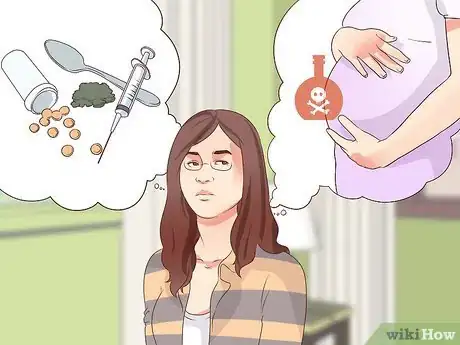
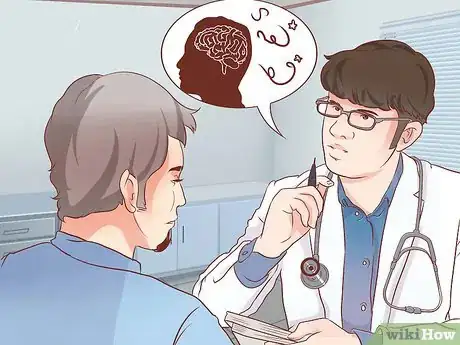
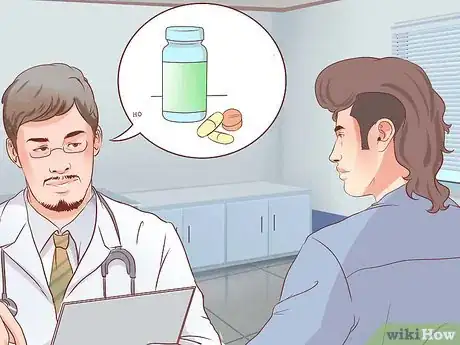

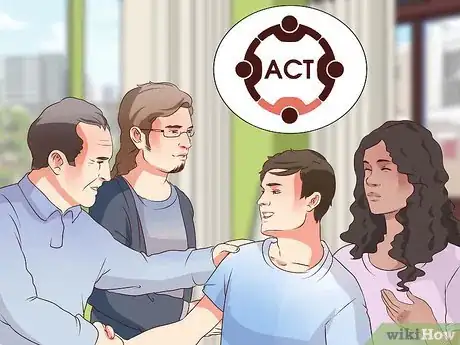



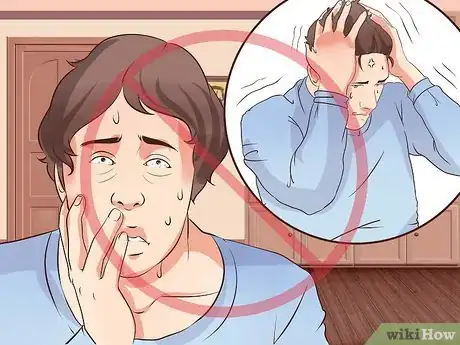

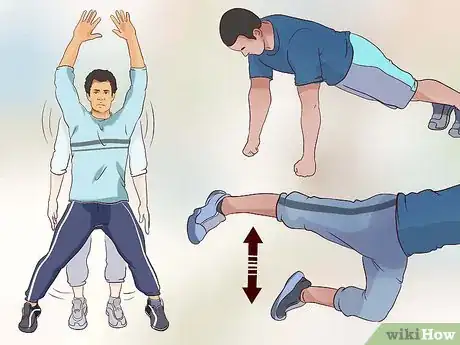
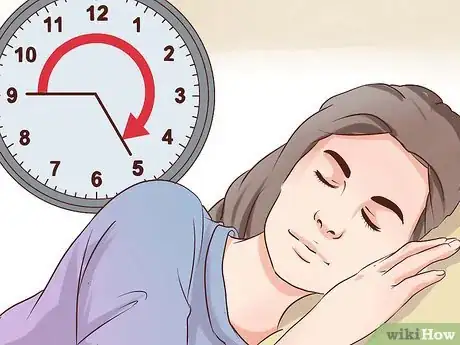



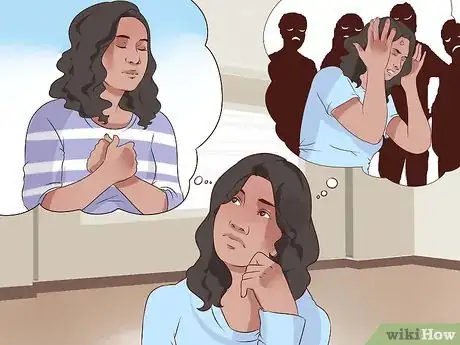

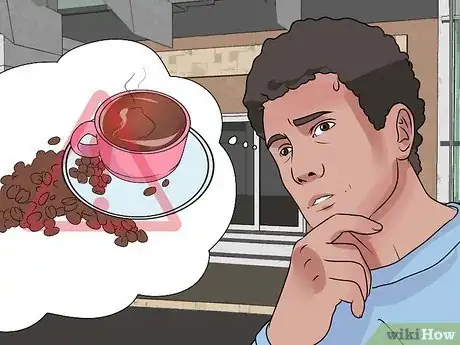







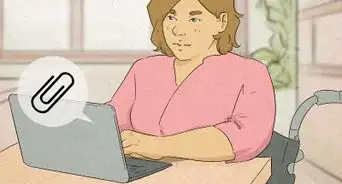



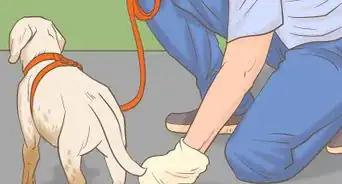


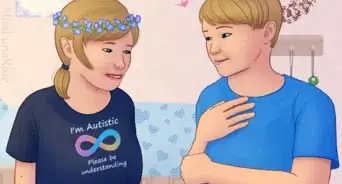



















































Medical Disclaimer
The content of this article is not intended to be a substitute for professional medical advice, examination, diagnosis, or treatment. You should always contact your doctor or other qualified healthcare professional before starting, changing, or stopping any kind of health treatment.
Read More...